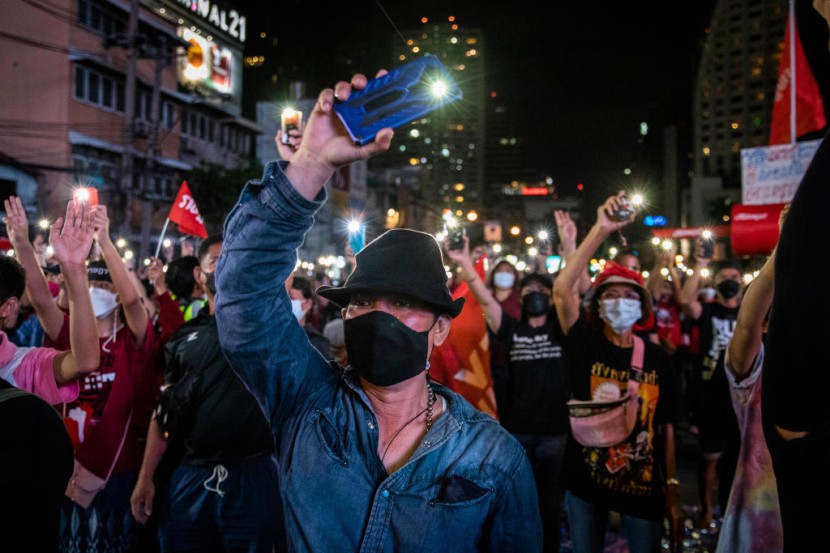
Dozens of protesters ravaged the streets of Thailand as the COVID-19 pandemic raises the country's death toll past 12,000.
Thousands of people have been holding anti-government protests daily in Thailand to protest the government's failing response to the novel coronavirus pandemic. Once known as a virus-containing wonder, Thailand has now reported 12,855 COVID-related deaths.
Dozens of Protests
The protests, which have grown more desperate, have prompted Thai security forces to utilize more aggressive methods. In August, police had used force to break up at least 10 demonstrations. In one protest, a 15-year-old boy was rushed to the hospital and admitted to intensive care after he was shot.
In Bangkok, Thailand's capital, riot police have also begun using rubber bullets and tear gas to dismantle protests. This led civil society groups, including Amnesty International, Human Rights Watch and Manushya Foundation, to urge Thai authorities to show restraint when handling demonstrations.
"We are troubled by the disproportionate response of riot police to provocations by protesters. We are also concerned by the arbitrary detention of protest leaders who have recently faced new criminal charges and have been denied bail and detained," a joint letter addressed to Prime Minister Prayut Chan-o-cha read.
"Thailand needs to do more to protect protesters from violence and ensure that the public can safely exercise the right to peaceful assembly during the COVID-19 pandemic."
The protests come after Thai authorities on Monday morning local time announced 13,998 new confirmed COVID-19 cases and 187 additional deaths in the past 24 hours. Overall, Thailand has recorded 1,280,534 cases, according to the latest data from Johns Hopkins University.
Cause of Surge in COVID-19 Cases
The rise in COVID-19 cases, hospitalizations and deaths are fueled, in part, by the Thai government's slow rollout of the COVID-19 vaccine. The government has appointed Siam BioScience, a company whose dominant shareholder is Thailand's king, to produce the AstraZeneca vaccine domestically.
However, the company does not have any experience making vaccines. The drug maker has also reported hitting a setback in its vaccine production, according to US News.
The Thai government has also struggled to secure imported supplies of vaccines. As of Monday, only 15% of the population have been fully vaccinated against the virus, many of whom are young and rich, according to The New York Times.
Despite the country's COVID-19 crisis, Prime Minister Chan-o-cha continues to sit in his position after surviving his third no-confidence vote on Saturday, which critics the administration's poor handling of the COVID-19 pandemic.
The final tally showed than 208 lawmakers cast a vote of no-confidence, as opposed to the 264 lower house members who voted to retain the prime minister. There were three abstentions.
A previous no-confidence vote found 269 politicians believing he should stay in position, while 196 legislators said he should be removed. At the time, 11 lawmakers abstained.
No-confidence votes were also held for Saksayam Chidchob, the agricultural and cooperatives minister; Transport Minister Chalermchai Sri-on; Labor Minister Suchart Chomclin; and Chaiwut Thanakamanusorn, the digital economy and society minister. They all survived the voting process, according to Nikkei Asia.
Related Article:
© 2026 HNGN, All rights reserved. Do not reproduce without permission.








